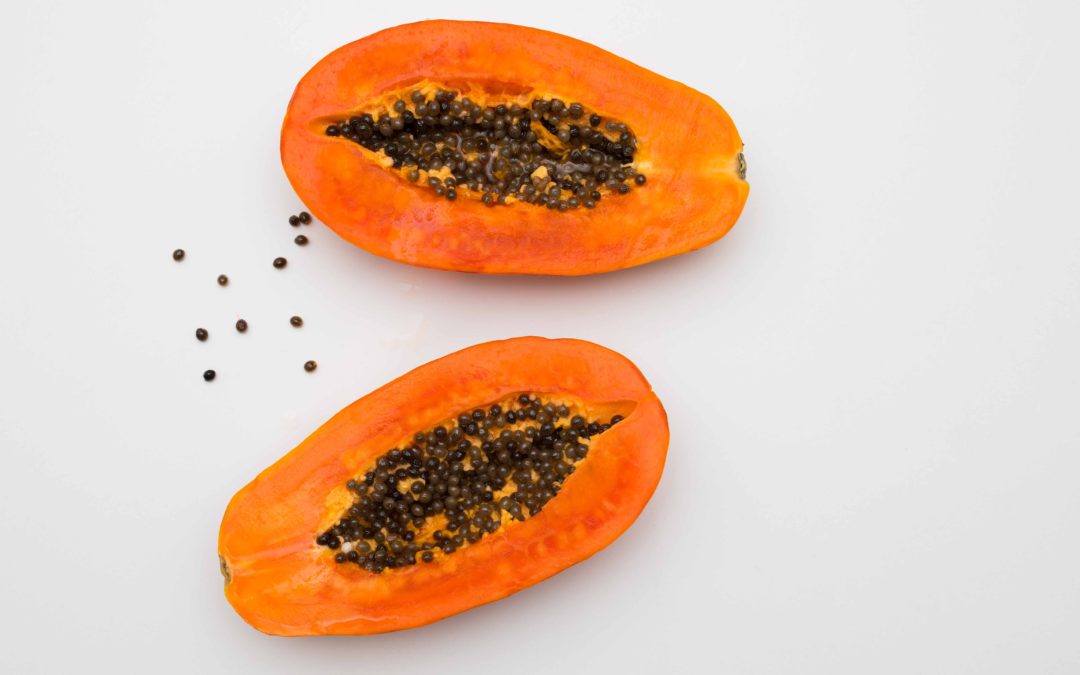In my last post we talked all about your gut microbiome and how that relates to your endo. Today we are going to take it a step further and look at how the microbiome of your reproductive tract can have huge impacts on your health as well. BV refers to bacterial vaginosis which refers to an imbalance in bacteria within your vagina. BV and endometriosis is a connection that is more common than most people think, but may actually be a key missing link that can be huge for the healing process.
Let’s dive in!
Is your garden balanced?
We discussed in regards to your gut microbiome how it is like a garden. You want to have a garden full of many different types and colors of flowers that are well-tended and blooming and beautiful! But sometimes the weeds take over and start to kill off the beautiful flowers by taking all their nutrients and choking them out.
Well, the same thing can happen in your vagina, ladies!
Your reproductive tract is full of a wide variety of bacteria. That’s the way it should be! In fact, when a baby is born through the birth canal, that is their first exposure to that bacteria and it is a crucial step to developing their own healthy microbiome.
Let’s rewind a little…what exactly is bacterial vaginosis?
Basically, bacterial vaginosis (BV), is an imbalance in the vaginal microbiome. Just like what can happen in your gut, an imbalance in bacteria occurs. That means that there might be more of the “bad bugs” and not as many of the “good bugs.”
This can show up differently for different people of course. Some people may actually notice an increase in vaginal discharge which may have an odor or could be gray or white in color. Others may not notice any symptoms directly, but may be experiencing pain with sex or even infertility.
What BV and endometriosis means for you!
So you have a bacterial imbalance down there…so what?
BV can actually have huge effects on your health. For starters, it might directly cause some discomfort or even pain. Chronic yeast infections are common as well as vaginal dryness and painful intercourse. You may feel itchy down there or have some weird discharge. That can all cause life to be uncomfortable in and of itself!
It also leaves you more prone to STIs like chlamydia, gonorrhea, HPV, and even HIV since there are vulnerabilities in your immune system. That’s something nobody needs in their life!
Possibly the biggest impact of BV and endometriosis is its impact on fertility.
What?! Bacteria can impact my fertility?
Absolutely! Now, the topic of fertility with endometriosis is a much wider conversation than just the microbiome of your reproductive tract, but it is most definitely a piece of the puzzle. In a recent study, BV was 3.3 times more likely to be found in infertile women.
Even when using IVF, women with lower levels of lactobaccili (one of the “good guys”) were less likely to have a successful embryo implantation than those with higher levels. Plus, women with lower levels of microbial diversity were more likely to have poor pregnancy outcomes.
There is also a strong connection between bacterial dysbiosis and inflammation. Inflammation can also affect fertility because it can impact implantation. At the end of the day, your body is very intelligent. If it feels like it is under a lot of stress all the time (hello, chronic inflammation), then reproduction will be the last priority on its list.
How exactly does my vaginal microbiome get out of whack?
As with most imbalances in our bodies, it is likely not just one thing. There are a variety of things that can impact your microbial balance.
The first of these would be your gut microbiome. Your gut microbiome has a huge impact on the microbiome of your reproductive tract as well. I’ll link to last week’s post at the bottom of this article if you would like to know more about your gut microbiome and what impacts it.
There are other lifestyle factors and foods and products that we put in and on our bodies that have an impact on your vaginal microbiome as well. This includes lubricants, douching, smoking, period products, azithromycin, and of course your diet.
How do you know if this is an issue for YOU?
BV and endometriosis do have a connection, but it doesn’t mean that is the case for everyone. Endometriosis is a full-body, multifactorial disease. There is not one single cause or one single solution.
However, if the microbiome of your reproductive tract is out of balance, bringing it back to balance would absolutely be of help to your endo health (as well as your fertility!).
If you find yourself struggling with some of the symptoms we talked about before, like itchiness, foul smelling discharge, frequent yeast infections, or infertility, this may be something to look into for yourself.
The simplest way to get an idea of what is going on is to test your vaginal pH. Studies have shown that pH has a direct correlation with certain types of bacteria. Ideally, your pH should be between 3.8 to 4.5 to keep the microbiome stable. Your microbiome also helps to promote this acidic environment, which helps to kill off unwanted pathogens.
If your pH is above that range, that can be a sign of dysbiosis down there.
Luckily, there are very simple and inexpensive at-home tests you can take to find this out. You just use some pH paper like this one, swab some vaginal fluid onto a clean Q-tip, smear it on the paper, and see your instant results. It’s that simple!
If it comes back normal, great! If it comes back out of range, then you can take some actions to help bring your microbiome back into balance.
What can you do about BV and endometriosis?
This is always my very favorite part of the conversation! I don’t like to leave you hanging and just know what’s wrong without having an idea of what to do about it.
The first place to start is always your diet. Start by reducing or even removing processed foods, sugar, and alcohol. Fill your plate instead with a wide variety of fruits and vegetables, healthy fats, and protein. This alone can make a huge difference!
You can also work on some of those lifestyle choices we talked about earlier. If you are a smoker, it may be time to finally kick that habit to the curb. Quit the douching and lubricants while you are at it and then swap out your period products for organic cotton.
If there is a major imbalance, you may need to address that by doing some work on balancing your gut microbiome with a qualified professional.
You can also even use probiotics directly inside of your vagina when it is needed. What I recommend is opening up a probiotic capsule (I like to use MegaSporeBiotic by Microbiome Labs), mix it with water to make a paste, and apply it directly inside of your vagina.

BV and endometriosis…the recap!
If you are a skimmer, I’ve got your back! Here is a recap of the major points from today’s article on BV and endometriosis:
- There is a huge correlation between endometriosis and imbalance in the microbiome of your reproductive tract.
- Your vaginal microbiome needs to be in balance just like your gut microbiome does.
- Imbalance in your vaginal microbiome can lead to symptoms like chronic yeast infections, itchiness down there, foul-smelling discharge, or even infertility.
- Measuring your vaginal pH is a great way to get an idea of what is going on down there.
- To bring your vaginal microbiome back into balance, you will want to address diet, your gut microbiome, and lifestyle choices that can directly impact your vaginal microbiome.
If you find yourself in a space where you need deeper support in bringing your microbiome and your body back into balance, I am happy to help. Click here to learn more about Thrive With Endo, my 1:1 program and book in a free strategy session today.
Much love, my friend!
Other Articles You Might Enjoy:
The Microbiome-Endometriosis Link: Unleashing the Power of Gut Health
3 Ways Gut Testing Helps Endometriosis
References:
Kairys, Norah; Garg, Manish. (2022). Bacterial Vaginosis. Retrieved from: https://www.ncbi.nlm.nih.gov/books/NBK459216/
Ravel, Jacques; Moreno, Inmaculada; Simon, Carlos. (2020). Bacterial vaginosis and its association with infertility, endometritis, and pelvic inflammatory disease. Retrieved from: https://www.ajog.org/article/S0002-9378(20)31193-5/fulltext
Laschke, Matthias W; Menger, Michael D. (2016). The gut microbiota: a puppet master in the pathogenesis of endometriosis? Retrieved from: https://www.ajog.org/article/S0002-9378(16)00336-7/fulltext
Ata, Baris; Yildiz, Sule; Turkgeldi, Engin; Brocal, Vicente Pirez; Dinleyici, Ener Cagri; Moya, Andres; Urman, Bulent. (2019). The Endobiota Study: Comparison of Vaginal, Cervical, and Gut Microbiota Between Women with Stage 3/4 Endometriosis and Healthy Controls. Retrieved from: https://www.nature.com/articles/s41598-019-39700-6
Miller, Elizabeth A.; Beasley, DeAnna E.; Dunn, Robert R.; Archie, Elizabeth A. (2016). Lactobacilli Dominance and Vaginal pH: Why is the Human Vaginal Microbiome Unique? Retrieved from: https://www.ncbi.nlm.nih.gov/pmc/articles/PMC5143676/


